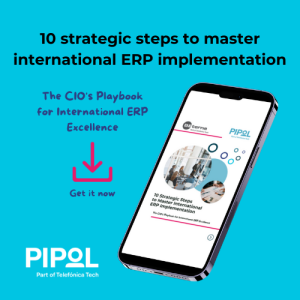How do you create a data-driven culture? Leadership.

Organizations with established data-driven cultures are those that are always striving to leverage data in order to enhance business effectiveness and efficiency. Every possible opportunity is seized by staff at all levels, with resulting higher output and productivity.
Almost every business leader today aspires to establish a data-driven culture, because the benefits of doing so are clear, no matter the industry. But it’s not so easy to create. And in order to establish an organizational culture that embraces the opportunities (and complexities) of data, business leaders need to lead by example.
Step one is collecting the data. Step two is using it.
More and more companies are amassing a great deal of data, across their businesses. Unfortunately, it’s often an untapped resource if it’s not properly leveraged. That data is only useful when it’s an integral part of the organization, being acted upon. So how is the culture change implemented?
It takes money, time, expertise – plus deep commitment from the top
Becoming a data-driven company is a process, and it doesn’t happen overnight. And since most people are change averse, the process comes up against resistance. Success demands having the right analytics tools, setting an ambitious (but realistic) strategy that involves data-driven goal setting, and hiring the right internal (or external) expertise. It also involves training staff who may be less tech savvy so that they’ll understand the process and benefits of using metrics, in order to properly utilize the data. But even with the best tools and highly skilled employees, to succeed means having unequivocal C-level support for top-to-bottom buy-in.
Leading by example fosters change
Top leadership must do more than just approve expenditures for new analytics tools and staff. Business leaders need to believe what the data shows, and deal intelligently with the consequent implications – no matter how challenging that may be. They must reinforce the importance of data through evidence-based decision making. If they don’t, whatever measures that have been taken to build up a data-literate culture will dwindle and lose their efficacy.
Data can only take your organization so far. The real drivers of change – and thus, success – are the people. Starting at the top.
We’re here to help
At Pipol, we know how to guide organizations likes yours along the path to a deeply rooted data-driven culture. Our Business Intelligence (BI) services offer both a customized strategy in tandem with a focused roadmap, to help companies maximize their data-driven potential. Our end goal is to help organizations develop a data-empowered culture that becomes part of the organization’s DNA. We invite you to contact us, and we’ll help you begin the process with our ERP Business Intelligence Assessment.





